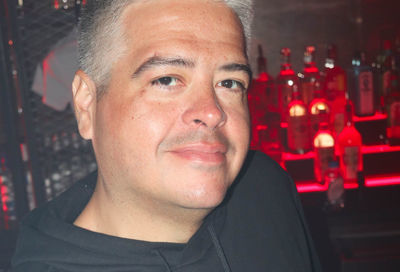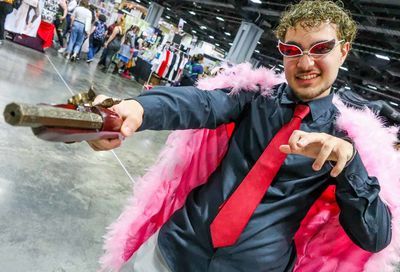California Supreme Court Says Prop 8 Proponents Can Bring Appeal, Ninth Circuit Likely To Consider Appeal’s Merits
The California Supreme Court, in a unanimous opinion, has told the U.S. Court of Appeals for the Ninth Circuit that the proponents of Proposition 8 do have the interest and authority to bring a post-election appeal as part of the state’s initiative process. The Ninth Circuit will now take the appeal, Perry v. Brown, back under advisement and decide how it wishes to proceed on the question of whether the proponents have standing under federal law, although the scope of today’s opinion makes it almost certain that the federal court will find standing.
The state court was asked by the Ninth Circuit whether the proponents have “particularized interests” in seeing the initiative upheld and whether California law itself allows the proponents to stand in the place of elected officials charged with defending the state constitution when those officials decline to do so.
Attorney Ted Olson, who is representing the plaintiffs who successfully challenged the constitutionality of Proposition 8 at trial, said of today’s decision in a conference call this afternoon with reporters, “This frees up the Ninth Circuit to decide the constitutional issues … on the merits.”
Asked whether the Ninth Circuit might, despite today’s decision, find the proponents to lack federal standing, David Boies, Olson’s co-counsel, said on the call, “I think the court of appeals … when it certified this question indicated that it was inclined to accept whatever decision” the state court made.
Olson concurred, saying, “They’ve pretty much locked themselves in and agreed to accept whatever the [California Supreme Court] said.”
Of the potential to raise the standing question again at the U.S. Supreme Court, Olson said the plaintiffs could do so: “The standing issue is still in the case.”
The California Supreme Court, in an opinion written by Chief Justice Tani Cantil-Sakauye, was very clear about its answer:
[W]e respond to the question posed by the Ninth Circuit in the affirmative. In a postelection challenge to a voter-approved initiative measure, the official proponents of the initiative are authorized under California law to appear and assert the state’s interest in the initiative’s validity and to appeal a judgment invalidating the measure when the public officials who ordinarily defend the measure or appeal such a judgment decline to do so.
The decision came about resulting from a request by the Ninth Circuit in the ongoing challenge to Proposition 8 brought by the American Foundation for Equal Rights. The case, in which the trial court judge struck down Proposition 8 as unconstitutional in August 2010, is on appeal before the Ninth Circuit. The Ninth Circuit appeals court sought to have the California Supreme Court assist it with the case by answering these questions about state law through the process of asking a certified question. The California Supreme Court accepted the invitation to answer the certified question and heard oral arguments on the question on Sept. 6.
As the California Supreme Court found the proponents to have a “particularized interest” and “the authority to assert the State’s interest,” the Ninth Circuit now is likely to find that the proponents do have standing under federal law to bring the appeal — although the court need not do so. At that point, the appeal of the Perry trial court decision — the “merits” decision from the trial court that Proposition 8 is unconstitutional — could go forward.
The question of standing was raised when the state officials who would ordinarily defend state laws — the governor and attorney general — decided not to appeal now-retired U.S. District Judge Vaughn Walker’s decision finding Proposition 8 to be unconstitutional under constitutional guarantees of due process and equal protection of the law. As such, the only party left appealing the trial court decision was the proponents of Proposition 8, which led the Ninth Circuit to question whether, constitutionally, the proponents themselves have the right to bring the appeal themselves.
The Ninth Circuit decided that the California Supreme Court could help the Ninth Circuit in reaching that decision by addressing the question, answered today, about the role of initiative proponents post-election under California state law.
The Ninth Circuit could now seek additional briefing and/or arguments or it could rule on both the standing question and the constitutionality of Proposition 8 with no additional steps. Once a ruling is issued from the Ninth Circuit, the losing party is almost certain to ask the U.S. Supreme Court to hear the case. As Olson indicated today, at that point both the standing and merits questions would be before the nation’s highest court for final resolution.
Read the decision:S189476.PDF
Support Metro Weekly’s Journalism
These are challenging times for news organizations. And yet it’s crucial we stay active and provide vital resources and information to both our local readers and the world. So won’t you please take a moment and consider supporting Metro Weekly with a membership? For as little as $5 a month, you can help ensure Metro Weekly magazine and MetroWeekly.com remain free, viable resources as we provide the best, most diverse, culturally-resonant LGBTQ coverage in both the D.C. region and around the world. Memberships come with exclusive perks and discounts, your own personal digital delivery of each week’s magazine (and an archive), access to our Member's Lounge when it launches this fall, and exclusive members-only items like Metro Weekly Membership Mugs and Tote Bags! Check out all our membership levels here and please join us today!




















